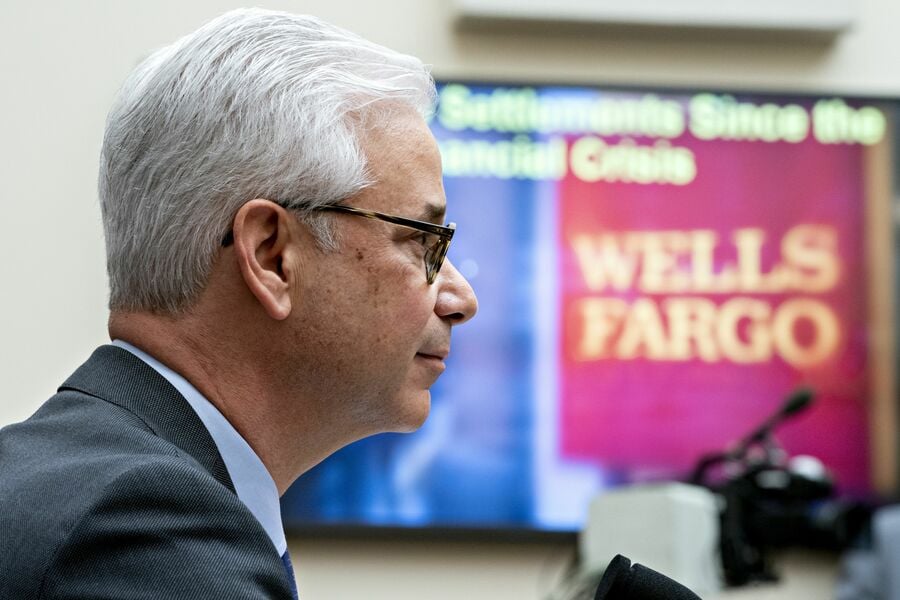

Wells Fargo Chief Executive Charlie Scharf said the Federal Reserve’s asset cap isn’t doing much to limit his bank’s activities at the moment but he expects it will in the future.
“The asset cap today is not a material limitation just because of where the trends in deposits and where loan demand is,” Scharf said Tuesday at the Goldman Sachs US Financial Services Conference. “It has been and it will be again.”
The fourth-largest U.S. bank has been hobbled by a Fed order limiting it to its size at the end of 2017 for more than five years — longer than Scharf’s tenure. The punishment is tied to a series of scandals at the bank that began with fake accounts seven years ago. Wells Fargo executives privately expect the restriction to stretch into 2025, Bloomberg News reported last month, citing people familiar with the matter.
In the wide-ranging conversation, Scharf also said the economy is stronger than expected. Consumer spending is consistent and, as for businesses, “with all the talk of rising rates and potential downturns, they’re positioned extremely well,” he said.
The San Francisco-based company expects to see losses in its portfolio of office loans in the fourth quarter and next year, Scharf said, adding that Wells Fargo is “conservatively reserved.”

Most firms place a limit on advisors’ sales of alternative investments to clients in the neighborhood of 10% a customer’s net worth.

Those jumping ship include women advisors and breakaways.

Firms in New York and Arizona are the latest additions to the mega-RIA.

The agent, Todd Bernstein, 67, has been charged with four counts of insurance fraud linked to allegedly switching clients from one set of annuities to another.

“While harm certainly occurred, it was not the cataclysmic harm that can justify a nearly half billion-dollar award to the State,” Justice Peter Moulton wrote, while Trump will face limits in his ability to do business in New York.
Orion's Tom Wilson on delivering coordinated, high-touch service in a world where returns alone no longer set you apart.
Barely a decade old, registered index-linked annuities have quickly surged in popularity, thanks to their unique blend of protection and growth potential—an appealing option for investors looking to chart a steadier course through today's choppy market waters, says Myles Lambert, Brighthouse Financial.
